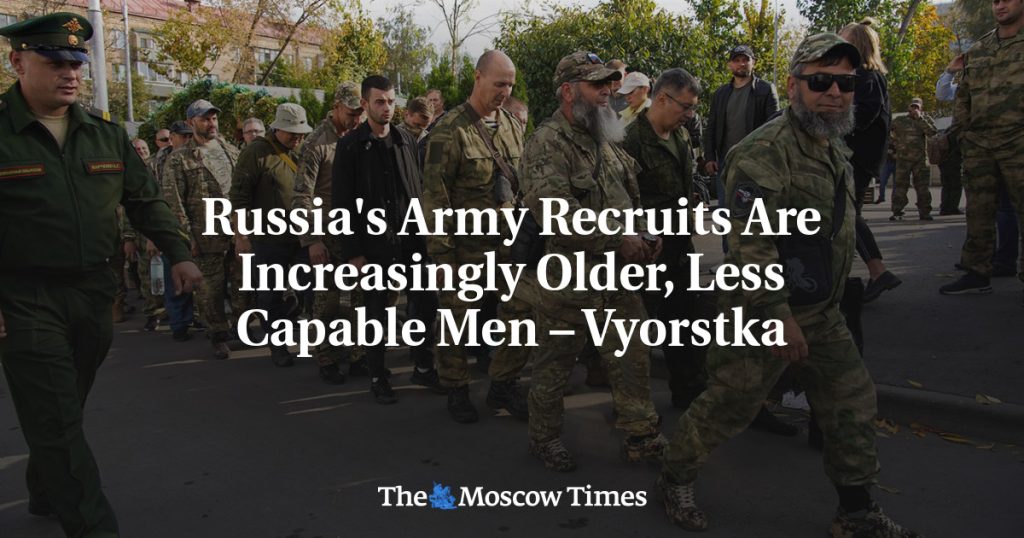The Russian military is facing challenges with an influx of older contract soldiers, predominantly aged 45 and above, which is viewed as detrimental to their war effort in Ukraine. Reports indicate that volunteer fighters in this age group now make up half of new recruits in Moscow, with the average age of recruits rising to around 50. These older soldiers are being described as physically unfit for combat, with complaints of various health issues affecting their performance on the battlefield. This trend is raising concerns about the effectiveness of the Russian military in Ukraine.
Russia has been actively promoting contract service in its Armed Forces since the spring of 2023, seeking to bolster its ranks without resorting to a new round of politically risky mobilization. Both regional and federal authorities have been offering increasing financial and other incentives to attract more soldiers to the military. However, the focus on recruiting older contract soldiers has led to questions about the overall readiness and capability of the Russian military in Ukraine. The aging manpower in the military is seen as a potential obstacle to achieving success in the conflict.
Reports from investigative news outlets Vyorstka, BBC’s Russian service, and Mediazona have highlighted the impact of the aging manpower on Russia’s military efforts in Ukraine. Data shows that a significant number of volunteer soldiers over the age of 45 have died in the conflict, accounting for half of Russia’s overall death toll in 2024. The high mortality rate among older soldiers raises concerns about their ability to effectively engage in combat operations and contribute to the military objectives in Ukraine. This situation underscores the challenges faced by the Russian military in managing an aging and potentially less capable force.
The recruitment of older contract soldiers in the Russian military has raised questions about the long-term implications for the country’s defense capabilities and the success of its operations in Ukraine. The reliance on older fighters, who may be physically unfit and less able to withstand the rigors of combat, has implications for the overall effectiveness of the military in achieving its objectives. The need for a balance between recruiting experienced personnel and maintaining a fit and capable fighting force is crucial for the Russian military to address in order to ensure its readiness and efficiency in conflict scenarios.
The challenges facing the Russian military due to the influx of older contract soldiers highlight the importance of strategic planning and recruitment policies to maintain a strong and capable defense force. Balancing the need for experienced personnel with the requirement for physical fitness and combat readiness is a key consideration for military leaders. Addressing the issues raised by reports of older soldiers’ difficulties in combat is essential for ensuring the success of military operations and achieving strategic objectives. The Russian military will need to adapt its recruitment and training strategies to overcome these challenges and enhance its capabilities in conflict situations.
In conclusion, the concerns raised by reports on the influx of older contract soldiers in the Russian military point to broader issues regarding military readiness and effectiveness in the conflict in Ukraine. The need to address the health and fitness of older soldiers, as well as the overall balance of experienced and capable personnel, is crucial for ensuring the success of military operations. Strategic planning and recruitment policies will play a key role in mitigating the challenges posed by an aging workforce and enhancing the military’s ability to achieve its objectives. By addressing these issues, the Russian military can strengthen its capabilities and improve its performance in conflict situations.


